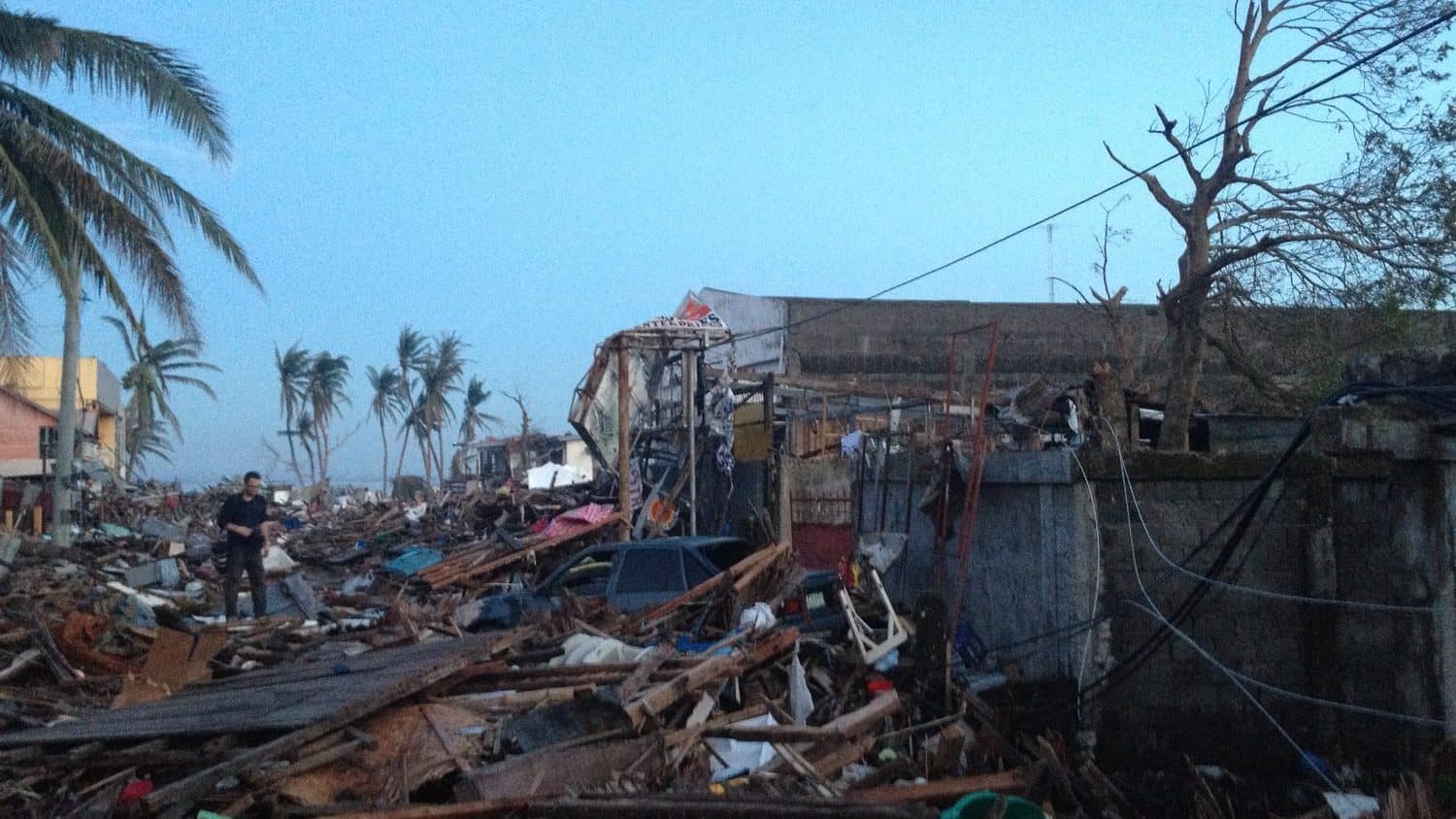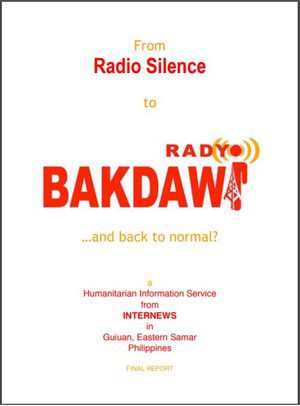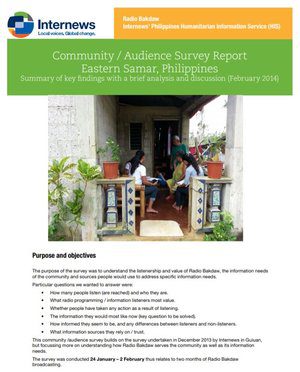
Radyo Bakdaw was set up by Internews in Guiuan, Eastern Samar, after the typhoon Yolanda/Haiyan hit the Philippines on November 8th 2013. The typhoon passed through 9 provinces, killing at least 6268 people. An estimated 14 million people were affected by it with 4 million people displaced.
In following four months, as part of a Humanitarian Information Service, Internews trained local radio makers to become humanitarian reporters, and gave a wider audience the chance to speak up, be listened to, and be part of the whole humanitarian response. The radio station was designed from the start to be a community radio station, run by local people, with information relevant for their own community. To ensure the information was relevant, timely and in sync, the production process was driven by questions received from the listeners. By listening to the community, Radyo Bakdaw became part and partial of the humanitarian response. Its presence improved efficiency, increased accountability and ensured the community its right to information, not just as abstract principles, but by putting simple ideas into practice, a radio which listens, information which is useful for the recovery, or, as the tagline of the radio put it, by “helping you to help each other”. This project was funded by DFID, via the Rapid Response Facility mechanism.
“Thoughtful and cost-effective niche programs led to is proportionately positive impacts (like for example, the Internews HIS project).”
Rapid Review of DFID’s Humanitarian Response to Typhoon Haiyan in the Philippines –Independent Commission for Aid Impact, Report 32, March 2014, page 16
IMPACT
- Humanitarian Information – Radyo Bakdaw was on air every day from 6 a.m. till 9 p.m. since the 26th of November, a total of 1,255 hours, including being able to provide life-saving information during the two first major storms of 2014: Agathon and Basyang. 6 weekly thematic programs were produced on livelihoods, health, shelter, mental health and youth, and one weekly karaoke contest, which could easily be considered a psycho-social relief activity.
- Enabling access to information – During the weekly Radyo Repair Days in the region 249 radio handsets were fixed for free by Internews technicians.
- Closing the feedback loop – More than 272 people were interviewed both in the station and in their Communities, while more than 140 organizations were able to provide information to communities through Radyo Bakdaw; and the Radyo Bakdaw hotline received more than 40,000 text messages from listeners.
- Supporting access to humanitarian services – Radyo Bakdaw handled 40 more cases of family reunification.
REPORTS

By listening to the community, Radyo Bakdaw became part and partial of the humanitarian response to Typhoon Haiyan.
Mar 9, 2014

Internews conducted an audience survey of people living in the municipalities of the Philippines most affected by Typhoon Haiyan to find out the impact of Radio Bakdaw and understand the information listeners look for.
Feb 9, 2014